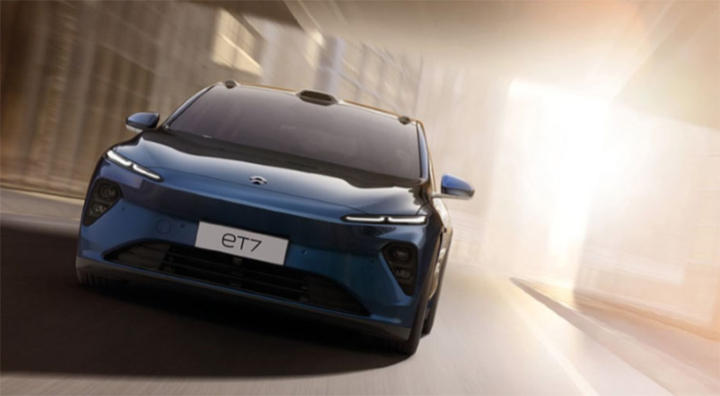Chinese Electric car manufacturer, NIO, is hoping to continue to be a leader in the automotive industry by providing long-lasting inbuilt surface protection before their cars leave the production line with Polygiene BioMasterTM antimicrobial technology.
Polygiene BioMaster inhibits the build-up of microbes on surfaces between cleans keeping car interiors fresher and more hygienic. The surface protection lasts 24/7 for the lifetime of the vehicle and can be applied to almost any substrate without compromising the structural integrity of the end-product.
Since the beginning of the pandemic, awareness of the importance of keeping surfaces free of microbes has been sharper than ever, so it’s little surprise that car owners are among those keen to ensure that their vehicle cabins are as clean as they possibly can be.
Car interiors are generally cleaned less frequently than other surfaces and areas of our day-today life. A recent study found that some items in almost every modern car, including cup-holders, seat belts and dashboard buttons are potential hot-spots for bacteria. Swabs showed between 100-200 individual bacterial types and the most heavily contaminated samples had between 2,000 and 4,000 live bacteria per swab*.
Initially, trials have been successful in incorporating Polygiene BioMaster coatings into NIO Haptex seats. Further trials are being extended to other potential hot-spots including handles and steering wheels.
The car manufacturer, with headquarters in Shanghai, specializes in designing and developing driverless electric vehicles. The NIO brand is considered to be one of the most viable electric vehicle pioneers and some industry experts predict it will soon be seen as a global leader alongside brands such as Tesla.
Among the models containing Polygiene BioMaster technology will be the NIO ET7 – NIO’s first saloon, a direct Tesla Model S rival, the top-of-the-line model has a ginormous 150kWh battery pack, with a combined 641bhp from its twin e-motors powertrain, 0-62mph takes 3.9 seconds.
Dahai Meng, Head of Environmental & Material at NIO says, “In order to give our users a more pleasant, hygienic, and comfortable driving experience, ET7 uses silver ion antibacterial additives on the PU leather seats. Polygiene BioMaster technology is the silver lining that will help NIO win in the future”.
“This is a breakthrough in the transport category which we now are heavily investing in. The automotive industry is a very interesting area with huge growth potential, and to start working with one of the most innovative cars of the future, is an important milestone for us”, says Ulrika Björk, CEO of Polygiene.
*Londra University College biyokimya mühendisliği bölümünden Profesör John Ward / Professor John Ward from the department of biochemical engineering at University College London.











